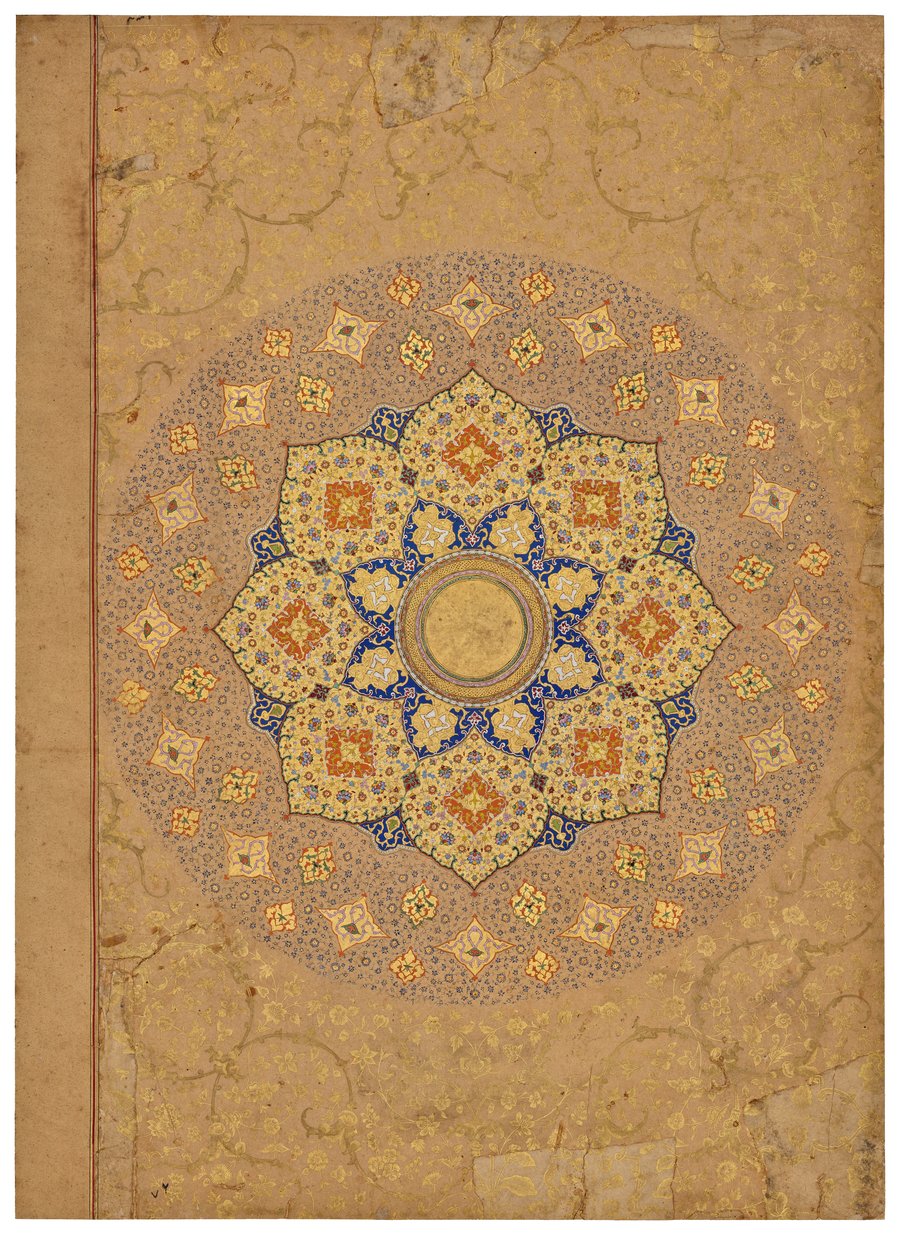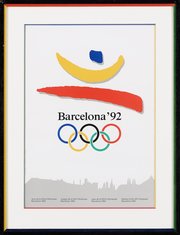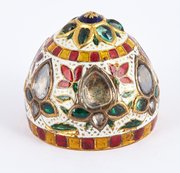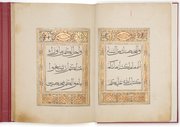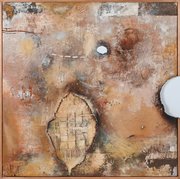
Illuminated Shamsa (Blazon) from a Royal Album of Shah Jahan
Museum of Islamic Art
- Title:
- Illuminated Shamsa (Blazon) from a Royal Album of Shah Jahan
- Production place:
- India
- Date:
- 1640 - 1650
- Period:
- Mughal
- Title:
- Illuminated Shamsa (Blazon) from a Royal Album of Shah Jahan
- Production place:
- India
- Date:
- 1640 - 1650
- Period:
- Mughal
- Material:
- Paper, Gouache, Gold
- Technique:
- Illumination, Painting
- Dimensions:
- 38 × 27.4 cm
This spectacularly illuminated folio would have been the opening page of a manuscript or assembled album, known as a muraqqa, in which a compilation of carefully crafted pages of paintings and calligraphy were put together by a patron. Here, this page follows a long tradition of embellishing the first page of Islamic manuscripts – in particular those from Iran and India – with a radiating shamsa (from the Arabic, sun). This visually empowering statement not only declared the beginning of the album, but often included the name of the patron for whom the album was commissioned. While this folio remains unmarked, perhaps a sign that the album was either unfinished or never delivered to its patron, its style and size are nevertheless reminiscent of the spectacular pages and albums commissioned by the Mughal emperor Shah Jahan (r. 1037-1068 AH/1628-58 CE). Indeed, known and dated imperial pages confidently attributed to the Emperor all feature similar amounts of gold paint, colours, and a central poly-lobed rosette detailed with scrolling blue arabesques. The splendid illumination on this folio, symbolic of a radiating sun-disc - itself a symbol of imperial power - supports its royal commission by Shah Jahan sometime during the 1050s or 1060s AH/ 1640s or 1650s CE.
